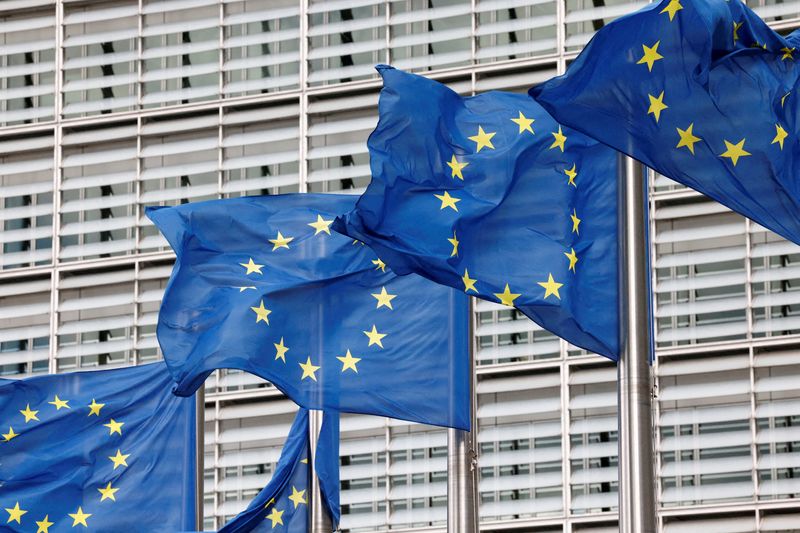By Gabriela Baczynska
BRUSSELS (Reuters) - The European Union auditors on Thursday criticised the bloc's specialised agencies for failing to prevent "revolving doors", a practice that sees officials taking up lucrative private-sector jobs at the risk of conflicts of interest.
The EU has more than 40 agencies operating in areas such as banking, border security and medicine, including the European Centre for Disease Prevention and Control and the European Medicines Agency that played key roles in the COVID-19 pandemic.
Last year, EU agencies had a joint budget of more than 4 billion euros ($4 billion), employed some 14,500 people - 17% of all EU staff - spending European funds worth more than 13 billion euros, according to the European Court of Auditors (ECA).
"EU rules set out very few obligations for EU bodies to monitor compliance of current and former staff with the 'revolving door' requirements," the ECA said in a report.
"On the other hand, EU agencies – especially those with regulatory powers and links to industry – are particularly prone to the risk."
With lobbying firms and sectoral businesses keen to hire former officials with inside knowledge and contacts, at stake is the integrity of EU policies and spending.
While the bloc's executive and main regulator, the Brussels-based European Commission, has some safeguards against such practices, there were no unified rules for the agencies, meaning they relied on scarce and patchy self-regulation at best.
For the agencies' board members, there are no coherent and binding limits on revolving doors whatsoever, which the ECA said created a legal vacuum and meant only a tiny part of such potential conflicts of interests were ever reviewed.
The ECA said only nine EU agencies had any internal rules for their board members on revolving doors. Out of about 1,500 such posts, some 650 people left their jobs in 2019-21, but only 25 cases were assessed vis-à-vis such risk.
"What we see is probably just the tip of the iceberg," auditor Rimantas Sadzius said of these numbers.
DAMAGE
Prominent cases of a former head of the powerful European Commission, Jose Manuel Barroso, joining Goldman Sachs (NYSE:GS), or of the bloc's ex-digital chief, Neelie Kroes accused of unfair lobbying for Uber (NYSE:UBER) have drawn public anger in recent years.
"Every time that happens, the EU is damaged," said the bloc's ombudswoman, Emily O'Reilly (NASDAQ:ORLY).
She said eurosceptics in Britain seized on the case of Barroso in the 2016 Brexit referendum, while now companies seeing their business affected were out to water down the bloc's policies meant to mitigate climate change.
Barroso has denied lobbying former EU colleagues for his new employer.
A 2017 report by Transparency International (TI) said a half of former EU Commissioners and a third of the bloc's ex-lawmakers moved to work in EU lobbying entities.
TI's Vitor Teixeira said there were too few firm rules on avoiding revolving doors, insufficient monitoring and even less enforcement, with the situation particularly bad in EU agencies.

"The current system of self-regulation, self-monitoring, and self-enforcement doesn't work and we need a new one," he said.
($1 = 0.9941 euros)